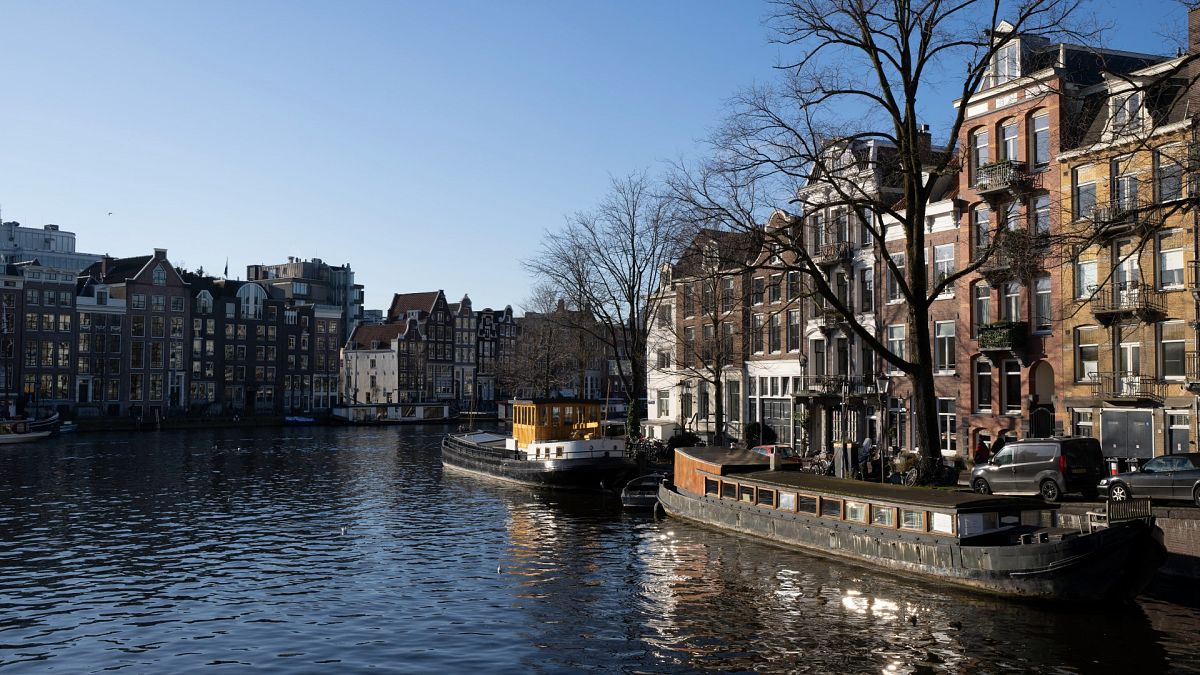
Euronews Business reveals where in Europe entrepreneus may have an easier time dealing with the challenges of setting up a business.
Starting a small or medium sized company in Europe doesn’t have to be as daunting as most people think. Although some countries across the continent can have stricter regulations that can be difficult for non-EU citizens, others are very open and welcoming of both domestic and foreign investors and business people.
Following COVID-19 and the impact of the energy crisis, Europe has been doing more to support and welcome SMEs. It currently has a number of financing and support schemes for small and medium enterprises such as the Single Market Programme, Connecting Europe Facility (CEF) and Horizon Europe. It also has a number of knowledge tools such as Your Europe Business Portal, Enterprise Europe Network and Erasmus for Young Entrepreneurs.
EU home to 24.4 million SMEs in 2023
According to Statista, in 2023, the European Union had about 24.4 million small and medium-sized enterprises (SMEs), employing nearly 85 million people. These made up about 99.8% of all up and running businesses in the continent and were the backbone of smaller regions and towns.
How easy it is to conduct business in any country means taking a few key factors into consideration. The World Bank’s Ease of Doing Business index has classified these into 10 parameters. These include:
- Starting a business
- Dealing with construction permits
- Getting electricity
- Registering property
- Getting credit
- Protecting minority investors
- Paying taxes
- Trading across borders
- Enforcing contracts
- Resolving insolvency
- Although not every country may be the best at every category listed above, here are some of the easiest countries in Europe to start a business:
Ireland
The Republic of Ireland is one of the most popular choices for starting a business in Europe, due to it being a high-income, very digitally developed economy. According to 1Office, smartphone usage has hit 90%, with household internet access also touching 92%, setting a good foundation for businesses with tech and digital products. With Enterprise Ireland investing in about 200 startups every year, the country sends out a very strong, welcoming message to entrepreneurs worldwide.
According to the World Bank’s Doing Business in the European Union 2020: Ireland study, several Irish cities rank highly on many of the above parameters. Businesses can very rapidly enforce contracts and get electricity smoothly in Cork. Dublin also does well regarding these two things, as well as starting businesses. Waterford is most efficient in issuing construction permits, whereas Galway is best at registering property, as well as starting a business.
Ireland being a member of the European Union, OECD and Eurozone, as well as using the euro and having English as one of the main languages, are also very attractive factors for European entrepreneurs. This is due to increased ease of business, a larger market across the EU, and cost savings in terms of no foreign exchange or translation fees.
Entrepreneurs from the UK, Iceland, Norway, Switzerland and EU do not need any permits or visas to set up shop in Ireland. The country also facilitates the remote company set-up and registering for non-EU citizens. It also has one of the lowest corporate tax rates in the world at 12.5% and a Double Taxation Treaty with about 72 countries so far.
Bulgaria
Bulgaria is a highly-favoured new business hub in Eastern Europe due to the relatively low bureaucracy involved in setting up a company, which takes only up to a couple of weeks. Administration costs are also very low, compared to most of Europe, as well as the corporate tax being only 10%.
Foreign companies have no legal restrictions on buying land in the country, and only have to pay operational costs after registration. EU entrepreneurs can also avail of cheap labour, highly-skilled and multilingual labour and a relatively low cost of living, while still having access to the European Single Market due to Bulgaria being part of the EU.
Bulgaria’s geopolitical location in the South East of Europe also provides convenient access to other established markets such as Greece and Turkey, while opening up opportunities in Serbia and North Macedonia.
Bulgaria also allows remote company registration. However, corruption still remains an issue in the country, which needs to be taken into account while considering what type of business to set up and which part of the country to be based in.
Netherlands
According to the World Economic Forum, Netherlands is the fifth largest economy in the European Union, with a gross domestic product of about $990.6 billion (€918.7 billion), accounting for about 5.96% of the EU economy.
Located very conveniently in Western Europe, Netherlands has an extremely cosmopolitan, highly educated and skilled workforce. The Dutch government provides a raft of business support schemes and tax incentives to new businesses. Although the corporate tax rate is a little higher than some other European options at 25.8%, a number of business owners could find it worth the price, for the location and market access.
